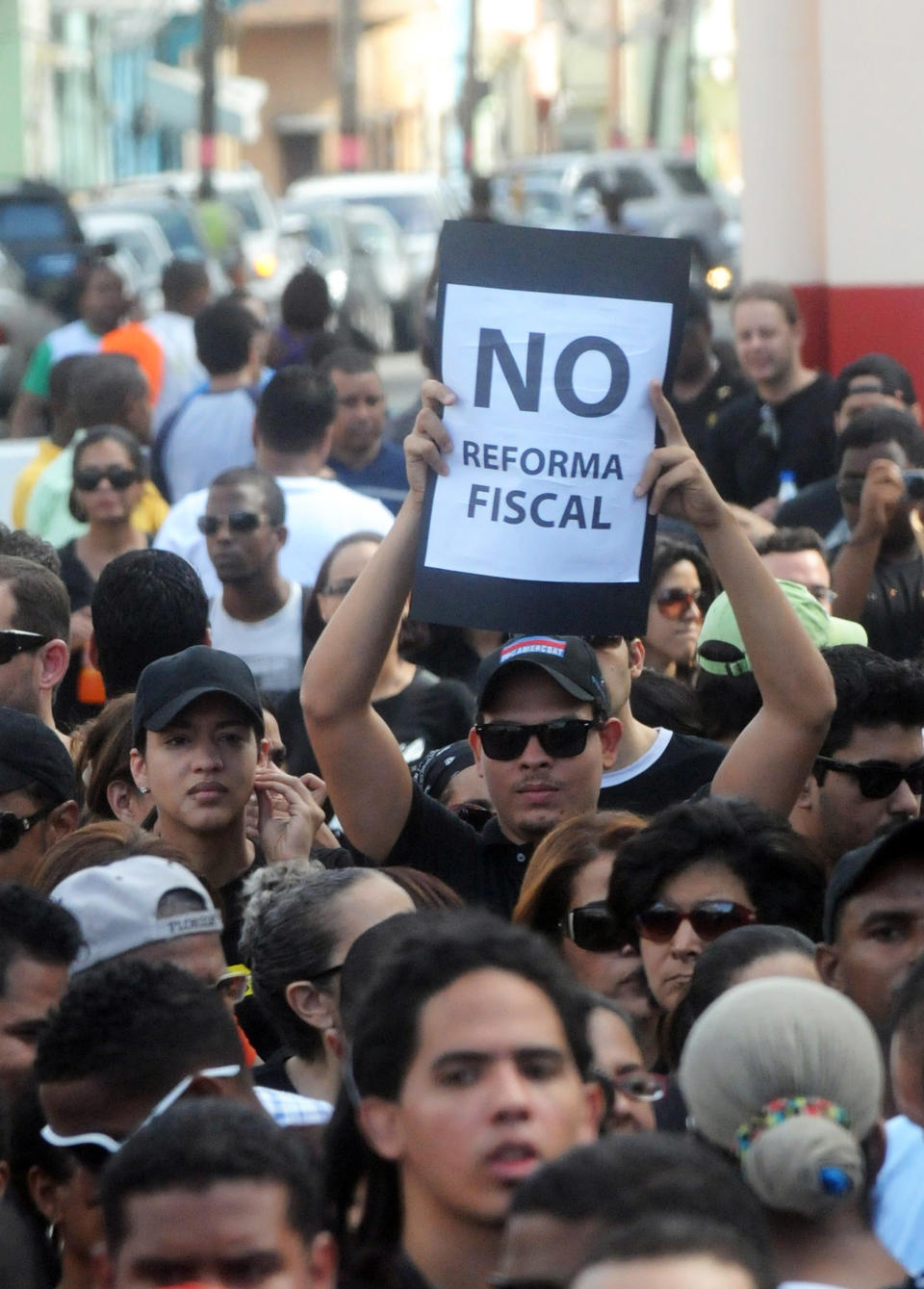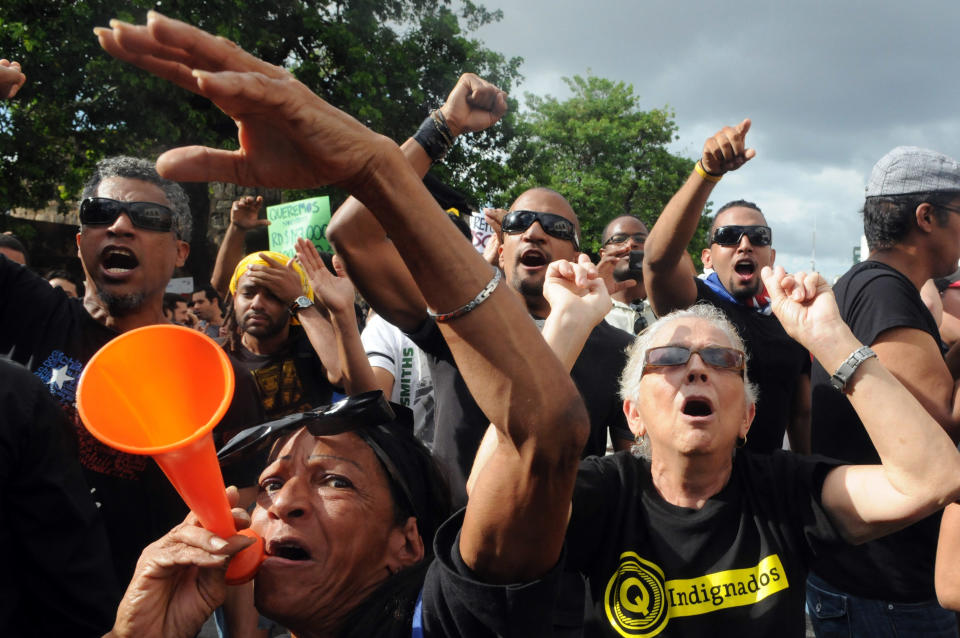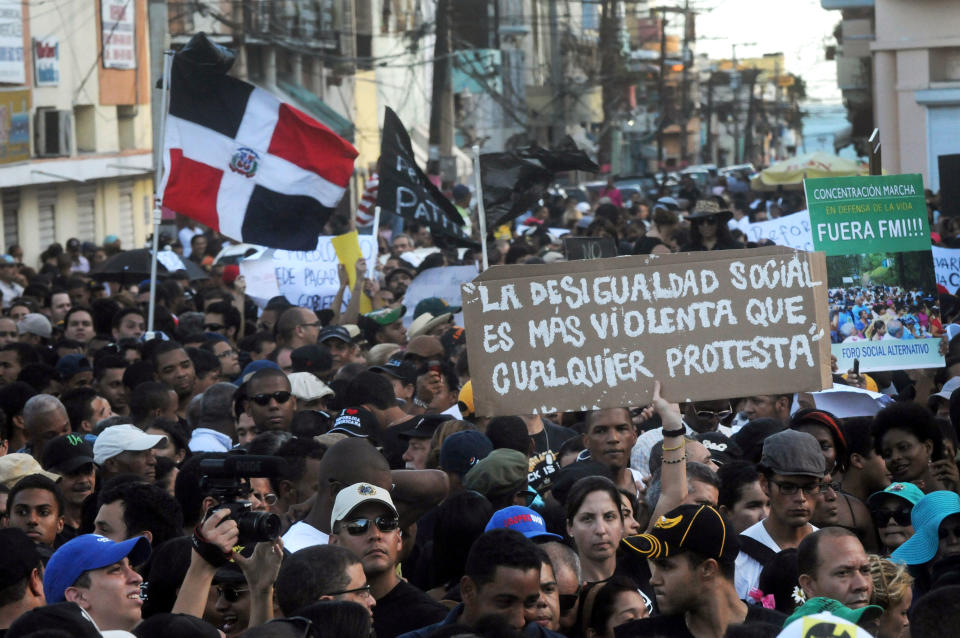Ex-president returns to explain Dominican deficit
SANTO DOMINGO, Dominican Republic (AP) — The previous president of the Dominican Republic announced Monday that he will address the nation to explain how his administration racked up a huge budget deficit, a rare public appearance by an ex-leader who has become a target of intense public anger.
Leonel Fernandez said he would give a nationally televised speech Tuesday night, two days after thousands of people marched in two cities in a protest largely over the government's announcement of a $4.5 billion deficit and a plan to raise taxes to help close it.
The former president had been considering a public statement for several days and the televised address is not intended as a direct response to the demonstrations, Ania Valdez, a spokeswoman for Fernandez, said in an interview with The Associated Press.
Thousands of protesters filled the streets of Santo Domingo, the capital, and Santiago, the second largest city, on Sunday to express anger at the measures proposed to close the deficit as well as government corruption, high salaries for lawmakers and the fatal shooting by police of a university student during a protest several days earlier.
"The people shouldn't have to pay for the abuses of the politicians," said Yenny Feliz, a 28-year-old who marched with her parents and husband.
Fernandez left office in August after two consecutive four-year terms and was replaced by Danilo Medina, a fellow member of the Dominican Liberation Party.
Fernandez, who also served as president in 1996-2000, presided over a huge public works spending spree intended to modernize the Caribbean country of more than 10 million people. His government spent $2.6 billion on roads, bridges, hospitals and a subway system modeled after the one in New York, where Fernandez spent much of his youth.
In the final months of his administration, officials had said the budget deficit would not exceed $500 million as the government had pledged to the International Monetary Fund, which came to the aid of the Dominican Republic in 2009 amid the global economic crisis.
The current president has proposed a series of measures to help close the gap, including an increase in the sales tax to 18 percent from 16 percent, application of the tax on some previously exempt basic food products and a rise in taxes on fuel and property.
Medina said in October that those measures would allow the government to make good on its campaign promises to increase spending on health and education.
But the president, who was scheduled to fly on Tuesday to the Ibero-American Summit in Spain, has stayed silent in recent days as protests have rocked the country.
The administration's only public comment has come from Vice President Margarita Cedeno, the wife of Fernandez. She said on Twitter on Sunday: "At the right time, President Medina and ex-President Fernandez will explain to the whole country the truth about the financial reform."



